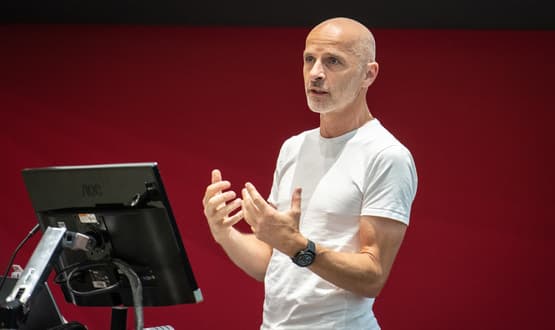Simon Bolton says NHS centre can be run more efficiently with less people
- 14 July 2022

NHS Digital’s interim CEO has said he believes the centre of the NHS can be run more efficiently by reducing the headcount and moving resources.
Kicking off Digital Health Summer Schools 2022 at the University of York, Simon Bolton told the audience how “we [NHS executives] think we can run the centre of the NHS more efficiently by reducing the headcount”.
This comes after NHS England’s CEO, Amanda Pritchard, revealed that the organisation is to be between 30-40% “smaller than the current combined size of NHS England, Health Education England and NHS Digital” by the end of 2023/24″.
Bolton stressed although only around 18,000 out of 1.3million are in the centre at NHS England, the plans to become smaller are not driven by reduction in cost but by efficiency and the ability to move resource from the centre to Integrated Care Systems (ICSs).
The interim CEO also said that most staff will remain in the NHS but may simply move from one building to another.
In his keynote speech, Bolton, who is also interim CIO at NHS England and Improvement, also spoke about managing convergence, in particular, moving to a smaller number of providers.
“I have never worked in an industry with such a wide range of providers,” he told the Summer Schools audience.
Bolton also revealed that a consultation will be taking place over the summer on managing convergence.
How ICSs will reduce health inequalities
Elsewhere, another session saw a panel come together to talk about how ICSs will reduce health inequalities through digital transformation.
The panel included Dr Tim Ferris, director of transformation at NHS England and NHS Improvement, who stressed that the key is to have the most efficient health and social care supported by digital systems and that people always think negatively about potential impacts.
He said: “People always think what is the worst that can happen? We should trust each other and simplify the systems used to reduce the burden on clinicians.”





7 Comments
Welcome to LaLa Land v2.0
The ICSs need new ideas and new people with open minds. Not already disillusioned staff with a centrist approach TUPEd across to save someone else money!
The reduction in supplier competition will make some lawyers a lot of money as it seems to be contrary to procurement legislation and one of the central libertarian tenets of the ruling Conservative Party.
It’s a while since I participated in this areas – back in the days of NPfIT. But the comment above regarding standards is KEY.
Radiology has DICOM standard – free, open source, produced by the radiology community – and this enabled a much quicker deployment of PACS than clinical systems. Defined coding standards are essential, and defined fields too.
They just need one NHS designed IT system that connects all systems across GP’s LA Trusts, pharmacies, hospitals, it would save money on paying suppliers to update systems and having to fight for tender, have more data quality and control and let upgrades / cyber security patches be rolled out quickly and confirmed. suppliers don’t often respond to confirm updates are done.
It’s the only way a persons records can continue all the way through without missing important info/paper records and everything is the same for consistent care. Staff can also have the same training as system suppliers have different looking systems and different training.
Yes, because the National Programme was such a success right?
Information can be shared if people use the same codes and identifiers throughout. This should be a primary focus of standards efforts, with winners all round. Codes and identifiers are needed for all the terms, things, people and places involved in healthcare. No need to make it complex.
So what exactly is wrong with a large number of suppliers? Do these people not realise that this convergence nonsense is quite likely in breach of competition law. Even just to discuss it, given their position and influence, is possibly an offence in itself. For ‘Group 2’ Trusts it seems those that have most market share will be gifted more. Wow! One would hope they have taken advice from their very own Competition and Markets Authority, otherwise they may see some legal action landing on their door steps.
Exactly whatis wrong with an
large numbers of suppliers is that theyput two fingers upat cross-NHS data standards.
This means that when patients like me are moved from Trust to trust, our data or records cannot follow us. Trusts, GPs, ambulances are therefore not connected.
Multiple suppliers would be OK if someone knocked their heads together – very hard.
Comments are closed.